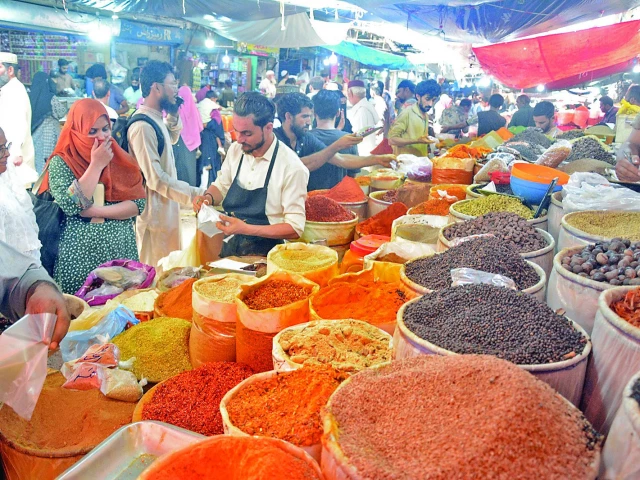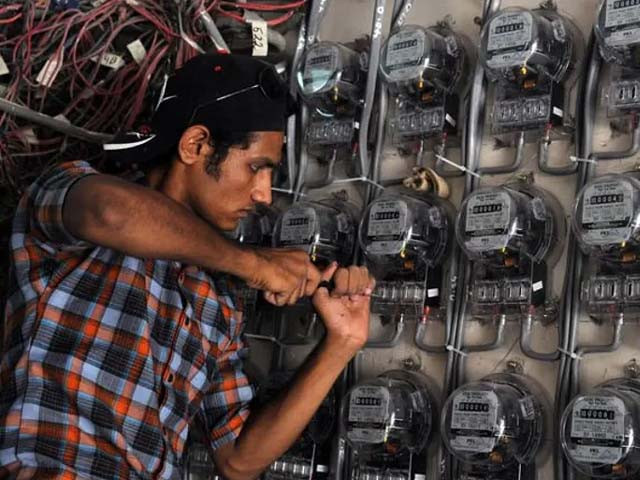Business
FBR removes ‘estimated market value’ column from 2025 tax return form | The Express Tribune

The Federal Board of Revenue has removed the “estimated fair market value” column from the 2025 income tax return form following directions from Prime Minister Shehbaz Sharif to ease the filing process.
A committee led by Federal Law Minister Senator Azam Nazeer Tarar was formed by the prime minister to review the column, which required filers to declare the estimated market value of their movable and immovable assets.
Members included the federal petroleum minister, minister of state for finance, attorney general, secretary finance, FBR chairman and senior officials.
Read: FBR sets new system for Customs
After meeting on September 26, the committee recommended dropping the column to simplify tax returns. The prime minister approved the recommendation, prompting the Federal Board of Revenue (FBR) to remove the requirement.
The FBR clarified that the column had been introduced only for data collection to support the Economic Survey and had no impact on income assessment or tax liability.
Taxpayers are urged to file accurate returns before the September 30, 2025, deadline.
Earlier, FBR clarified misleading social media claims, stating the requirement was part of the original return form notified on July 7. Officials noted that many filers had entered ‘0’ as the asset value, a practice that was later restricted.
Read more: FBR scans social media for evasion
Crucially, the FBR confirmed that taxpayers who have already filed their returns will not need to re-file them, as the asset value entries will be disregarded for tax purposes. No tax notices will be issued for errors in that specific column.
The board urges all eligible citizens to file their returns before the deadline of September 30, 2025.
Business
Without Rera data, real estate reform risks losing credibility: Homebuyers’ body – The Times of India

New Delhi: More than 75% of state real estate regulators, Reras, have either never published annual reports, discontinued their publication or not updated them despite statutory obligation and directions from the housing and urban affairs ministry, claimed homebuyers’ body FPCE on Friday. It released status report of 21 Reras as of Feb 13.The availability of updated annual reports is crucial as these contain details of data on performance of Reras, including project completion status categorised by timely completion, completion with extensions, and incomplete projects. The ministry’s format for publishing these reports also specifies providing details such as actual execution status of refund, possession and compensation orders as well as recovery warrant execution details with values and list of defaulting builders.FPCE said annual report data is not only vital for homebuyers to assess system credibility, but is equally necessary for both state and central govts to frame effective policies, design incentivisation schemes, and develop tax policy frameworks.“Unless we have credible data proving that after Rera the real estate sector has improved in terms of delivery, fairness, and keeping its promises, we are merely firing in the air,” said FPCE president Abhay Upadhyay, who is also a member of the govt’s Central Advisory Council on Rera.As per details shared by the entity, seven states — Karnataka, Tamil Nadu, West Bengal, Andhra Pradesh, Himachal Pradesh and Goa — have never published a single annual report since Rera’s implementation, and nine states, including Maharashtra, Uttar Pradesh and Telangana, which initially published reports, have discontinued the practice.Upadhyay said when regulators themselves don’t follow the law, they lose the legal right to demand compliance from other stakeholders. “Their failure emboldens builders and weakens the very system they are meant to safeguard,” he said.
Business
Infosys Rolls Out 85% Average Performance Bonus In Q3FY26, Best In Over 3 Years

Last Updated:
Over recent quarters, payouts had gradually improved from roughly 65 percent to 80 percent and now to an average of about 85 percent in Q3FY26.


Infosys logo is seen.
IT major Infosys rolled out performance bonus payouts averaging around 85 percent for the quarter ended December 31, 2025 (Q3FY26), marking the strongest variable pay outcome for eligible employees in at least the past three-and-a-half years, Moneycontrol reported citing people in the know.
The bonus payout for mid- to junior-level employees ranges between 75 percent and 100 percent, with most employees clustering around the organisation-wide average of 85 percent, the report said. The development signals a steady recovery in variable compensation at the Bengaluru-headquartered IT services firm. Over recent quarters, payouts had gradually improved from roughly 65 percent to 80 percent and now to an average of about 85 percent in Q3FY26.
Employees are expected to receive their bonus letters over the next few days, with the payout scheduled to be credited along with their February salary.
One employee told the outlet that it is the strongest bonus outcome seen in recent years. The payout is also among the rare instances since the Covid-19 period when variable pay has approached the upper end of the eligible range.
Infosys last paid out 100 percent variable compensation during the pandemic. In the quarters that followed, payouts were lower amid macroeconomic uncertainty and a broader slowdown in client spending across global markets.
The higher payout comes at a time when global IT stocks have faced renewed pressure, driven by concerns over rapid advances in artificial intelligence and their potential impact on traditional IT services models.
Shares of global IT firms have seen sharp sell-offs in recent weeks amid heightened investor focus on AI leaders such as Anthropic. Investors fear that generative AI tools could compress pricing, automate routine services work and reduce demand for legacy outsourcing models.
Against that backdrop, the improved bonus payout at Infosys is being viewed as a signal of operational resilience and near-term performance strength, even as sentiment around the broader IT sector remains cautious.
February 13, 2026, 21:44 IST
Read More
Business
Why you should consider switching bank accounts

Martin Lewis explains why now might be a good time to think about changing your bank account.
Source link
-

 Entertainment1 week ago
Entertainment1 week agoHow a factory error in China created a viral “crying horse” Lunar New Year trend
-

 Tech7 days ago
Tech7 days agoNew York Is the Latest State to Consider a Data Center Pause
-

 Business3 days ago
Business3 days agoAye Finance IPO Day 2: GMP Remains Zero; Apply Or Not? Check Price, GMP, Financials, Recommendations
-

 Tech1 week ago
Tech1 week agoPrivate LTE/5G networks reached 6,500 deployments in 2025 | Computer Weekly
-

 Tech1 week ago
Tech1 week agoNordProtect Makes ID Theft Protection a Little Easier—if You Trust That It Works
-

 Business1 week ago
Business1 week agoStock market today: Here are the top gainers and losers on NSE, BSE on February 6 – check list – The Times of India
-

 Fashion3 days ago
Fashion3 days agoComment: Tariffs, capacity and timing reshape sourcing decisions
-

 Business1 week ago
Business1 week agoMandelson’s lobbying firm cuts all ties with disgraced peer amid Epstein fallout















